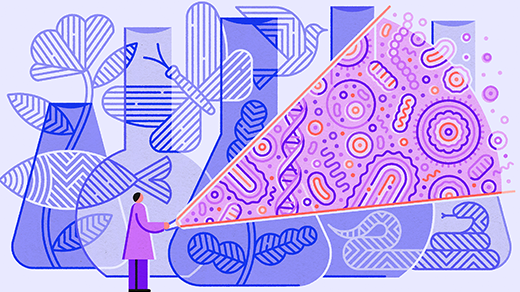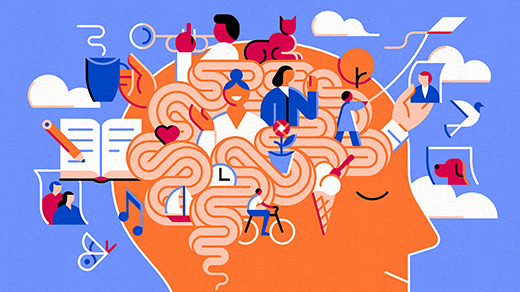What's up in
Memory
Latest Articles
The Year in Biology
Take a jaunt through a jungle of strange neurons underlying your sense of touch, hundreds of millions of years of animal evolution and the dense neural networks of brains and AIs.
How Your Brain Creates ‘Aha’ Moments and Why They Stick
A sudden flash of insight is a product of your brain. Neuroscientists track the neural activity underlying an “aha” and how it might boost memory.
How the Brain Moves From Waking Life to Sleep (and Back Again)
Neuroscientists probing the boundary between sleep and awareness are finding many types of liminal states, which help explain the sleep disorders that can result when sleep transitions go wrong.
What Can a Cell Remember?
A small but enthusiastic group of neuroscientists is exhuming overlooked experiments and performing new ones to explore whether cells record past experiences — fundamentally challenging what memory is.
The Molecular Bond That Helps Secure Your Memories
How do memories last a lifetime when the molecules that form them turn over within days, weeks or months? An interaction between two proteins points to a molecular basis for memory.
How ‘Event Scripts’ Structure Our Personal Memories
By screening films in a brain scanner, neuroscientists discovered a rich library of neural scripts — from a trip through an airport to a marriage proposal — that form scaffolds for memories of our experiences.
Concept Cells Help Your Brain Abstract Information and Build Memories
Individual cells in the brain light up for specific ideas. These concept neurons, once known as “Jennifer Aniston cells,” help us think, imagine and remember episodes from our lives.
What Happens in a Mind That Can’t ‘See’ Mental Images
Neuroscience research into people with aphantasia, who don’t experience mental imagery, is revealing how imagination works and demonstrating the sweeping variety in our subjective experiences.
Electric ‘Ripples’ in the Resting Brain Tag Memories for Storage
New experiments reveal how the brain chooses which memories to save and add credence to advice about the importance of rest.








